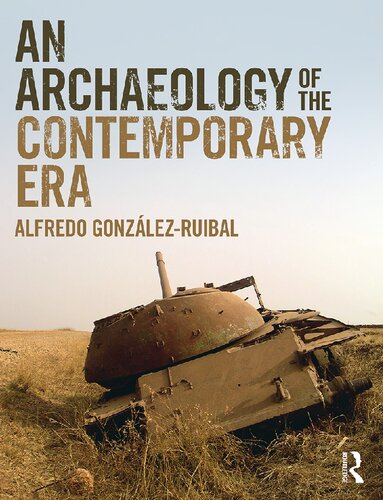

Most ebook files are in PDF format, so you can easily read them using various software such as Foxit Reader or directly on the Google Chrome browser.
Some ebook files are released by publishers in other formats such as .awz, .mobi, .epub, .fb2, etc. You may need to install specific software to read these formats on mobile/PC, such as Calibre.
Please read the tutorial at this link: https://ebookbell.com/faq
We offer FREE conversion to the popular formats you request; however, this may take some time. Therefore, right after payment, please email us, and we will try to provide the service as quickly as possible.
For some exceptional file formats or broken links (if any), please refrain from opening any disputes. Instead, email us first, and we will try to assist within a maximum of 6 hours.
EbookBell Team

4.7
16 reviewsAn Archaeology of the Contemporary Era approaches the contemporary age, between the late nineteenth and twenty-first centuries, as an archaeological period defined by specific material processes. It reflects on the theory and practice of the archaeology of the contemporary past from epistemological, political, ethical and aesthetic viewpoints, and characterises the present based on archaeological traces from the spatial, temporal and material excesses that define it. The materiality of our era, the book argues, and particularly its ruins and rubbish, reveals something profound, original and disturbing about humanity.
This is the first attempt at describing the contemporary era from an archaeological point of view. Global in scope, the book brings together case studies from every continent and considers sources from peripheral and rarely considered traditions, meanwhile engaging in an interdisciplinary dialogue with philosophy, anthropology, history and geography.
An Archaeology of the Contemporary Era will be essential reading for students and practitioners of the archaeology of the contemporary past, historical archaeology and archaeological theory. It will also be of interest to anybody concerned with globalisation, modernity and the Anthropocene.